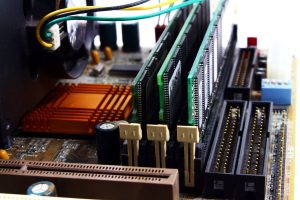
Sounds like science fiction — but it’s a rapidly approaching reality
When you hear the term quantum computer, your mind might immediately jump to a scene from a futuristic movie, where machines solve problems faster than humans can even articulate them. But quantum computers are not some distant future, they are a developing reality poised to redefine the world of technology as we know it.
In this article, we explain what a quantum computer actually is, how it differs from a classical computer, where the technology currently stands, and whether we should be excited or concerned. Let’s dive in.
Classical vs. Quantum Computers
To understand quantum computers, we first need to recall how traditional computers work. Classical computers operate using bits units of information that can hold a value of either 0 or 1. Everything your laptop or smartphone processes is done through vast sequences of these zeros and ones.
Quantum computers, on the other hand, use qubits quantum bits. Unlike regular bits, a qubit can be both 0 and 1 at the same time, thanks to a quantum phenomenon called superposition. In simple terms, a quantum computer doesn’t test each option one by one, it evaluates many simultaneously. This gives it unimaginable speed when solving specific types of problems.
Confusing? Absolutely. But this is exactly what unlocks possibilities that could transform entire industries.
Interestingly, in order for qubits to remain stable, quantum computers must be kept at temperatures close to absolute zero, nearly -273.15°C, colder than the vacuum of space.
How Does a Quantum Computer Work?
At the heart of a quantum computer lies quantum mechanics, the branch of physics that explains the behavior of subatomic particles. Qubits can exist in multiple states at once, and when they become entangled, they interact in ways that enable extraordinary computational power beyond anything we’ve seen before.
While a classical computer must go step-by-step, a quantum computer can process an enormous number of combinations in parallel. It excels at problems requiring massive parallel computation like optimization, molecular modeling, or breaking encryption codes.
How Powerful Are They, Really?
Here’s a staggering example: A quantum computer with just 300 qubits could, in theory, perform more calculations simultaneously than there are atoms in the entire known universe.
Of course, this doesn’t mean you’ll be watching Netflix on a quantum laptop in two years. But it does mean that once stable and functional systems are developed, quantum computers will be able to solve problems that are completely beyond the reach of even today’s most advanced supercomputers.
Tech giants like Google, IBM, and D-Wave are already developing quantum systems that, in specific experimental tasks, outperform classical machines. Back in 2019, Google announced that its quantum computer solved a problem in 200 seconds that would take a classical computer around 10,000 years to complete.
What Does This Mean for the Future?
Quantum computers aren’t coming to replace your laptop. They’re being developed to solve problems that conventional computers simply can’t. Areas that could be revolutionized include:
- Pharmaceuticals & Medicine – Simulating molecules and accelerating drug discovery
- Cryptography – Cracking current encryption methods but also creating quantum-secure communication
- Artificial Intelligence – Training models that currently take weeks could take just hours
- Finance – Real-time portfolio optimization and risk analysis
- Climate Modeling – Creating more accurate simulations for environmental forecasting and solutions
Simply put, quantum computers will unlock doors to solutions that are currently out of reach, even for the world’s most powerful systems.
Should We Be Worried?
It’s a valid question and one that experts often raise. The immense power of quantum computers carries real risks, especially in cybersecurity. Many of today’s encryption methods could quickly become obsolete, as quantum systems could crack them in seconds.
That’s why researchers are already developing quantum-resistant cryptography, new methods designed to withstand attacks from quantum processors. However, a broader ethical framework is also needed. Like any powerful technology, quantum computing can be used for good or for harm. It’s up to people, governments, and regulators to establish rules and boundaries before it’s too late.
When Will Quantum Computers Become Mainstream?
Although development is accelerating, most experts agree it will take at least another decade before quantum computers become standard tools in industry. They might never sit on our desks at home, but they will likely work behind the scenes to tackle extremely complex challenges.
Some companies are already offering cloud-based quantum access to researchers and businesses interested in experimenting with this cutting-edge technology.
The Quantum Era Has Begun
Quantum computers are no longer theoretical they are silently advancing, with enormous potential to reshape science, medicine, security, and business. They may not replace the devices we use every day, but they will undoubtedly change the rules of the game.
We shouldn’t fear technology itself only how we choose to use it. And if quantum computers still seem overwhelming, just remember: classical computers were once the size of rooms and couldn’t even play music. Today, we carry them in our pockets.
So get ready… the quantum revolution is coming.
If you enjoyed this article, feel free to share it and check out our other stories on technology and business.
Also, don’t miss our documentary series on our YouTube channel: “MALAMEDIJA”
Thank you for reading,
Your team at malamedija.rs



